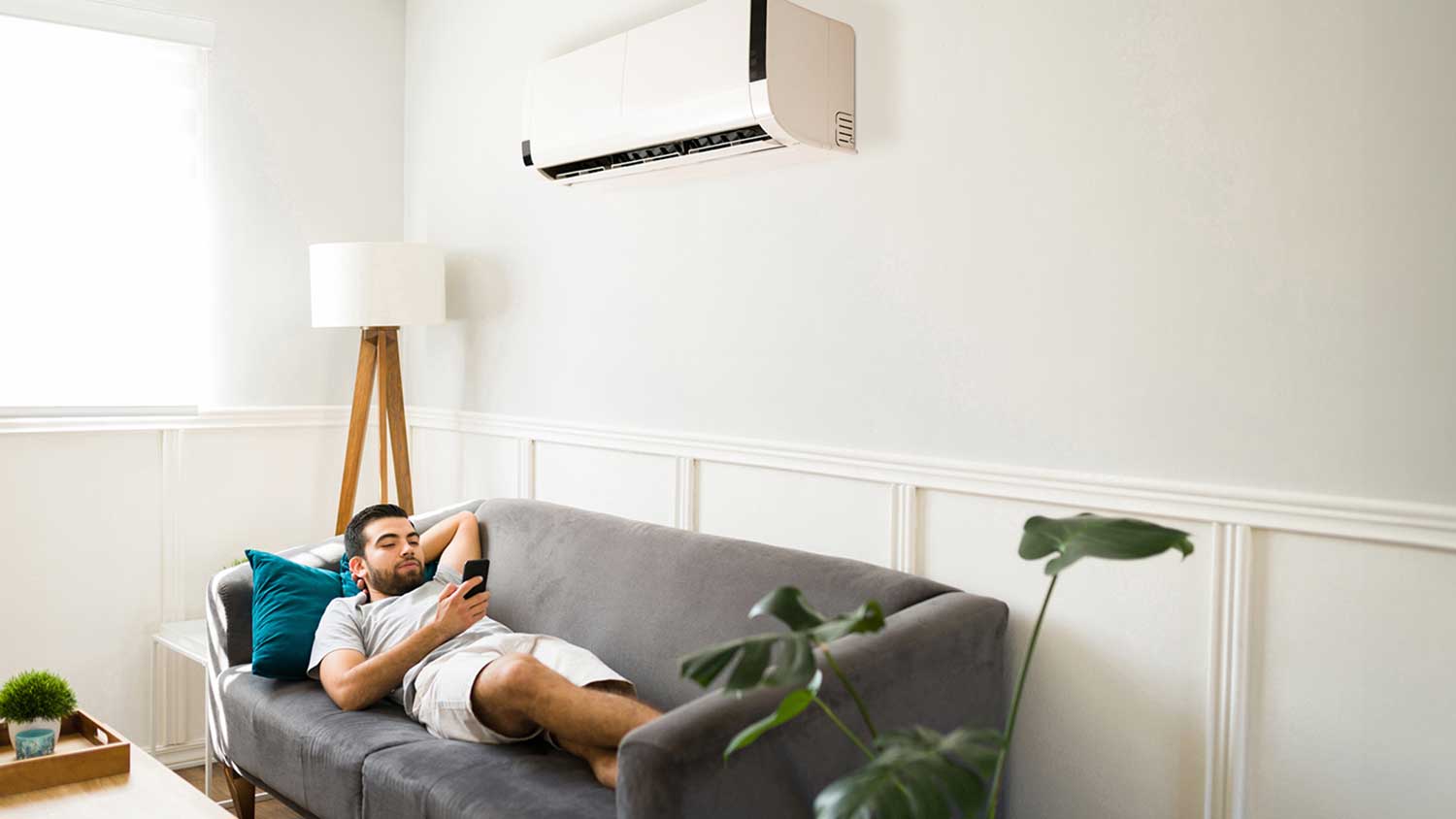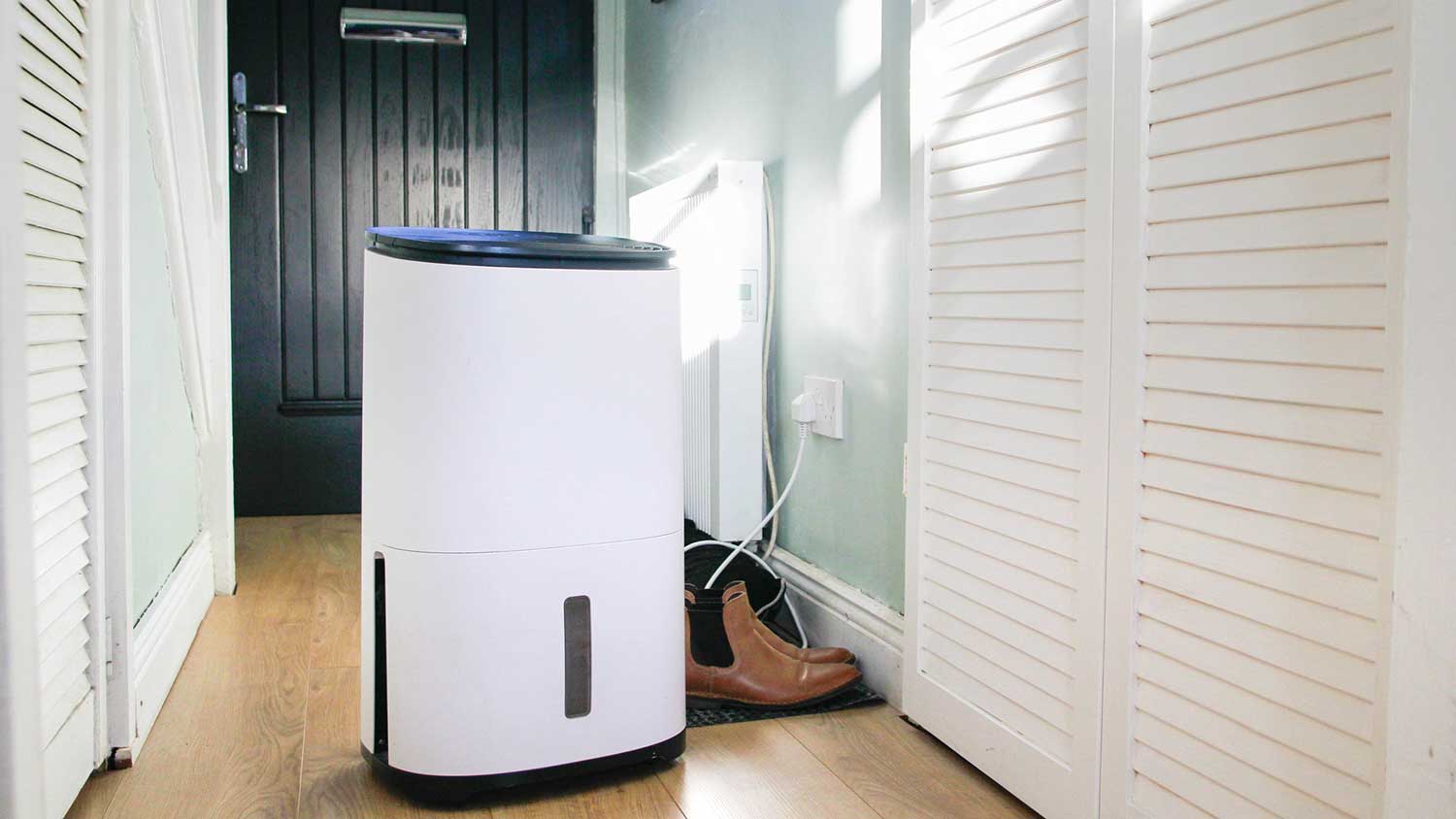Why Is My Mini Split Leaking Water? 5 Common Reasons
Don’t let your cooling system rain on your parade


A clogged drain is likely why your mini split is leaking water.
Other causes include air filter issues and frozen evaporator coils.
An HVAC repair professional can identify what’s causing the leak.
Regular maintenance on your unit is the best way to prevent future leaks.
While a little condensation in your mini split isn’t uncommon, an actual leak indicates a larger problem that needs to be addressed. Your mini split could be leaking for several reasons—maybe it’s a drainage issue, or perhaps your filter is full of debris that’s blocking airflow. Whatever the cause, it’s important to identify the source so that you can stop the meltdown before it becomes a full-on flood.
1. Clogged Drain
The most common answer to the question, “Why is my mini split leaking water?” is a clogged drain line. In most cases, an unclogged drain line takes the excess moisture your unit collects and distributes it to the outside unit. However, if the line is clogged, it can lead to leaks in the machine.
How to Fix It
Flush the line with warm water, vinegar, or compressed air to clear it of any debris that could be blocking it. If you’re not comfortable performing this task yourself, consider contacting your local HVAC repair technician to do it for you.
2. Air Filter Issues

Over time, air filters can collect dirt and debris that collect on your unit’s coils. This can block airflow and freeze your coils that, when thawed, leak water from the mini split.
How to Fix It
Replace your unit’s air filters according to the manufacturer’s user guide. You can also check your filters regularly, especially after a lot of use, to see if they’re getting dirty and causing leakage. Once a new filter is placed, the leaking should stop.
3. Frozen Evaporator Coil
Many problems can lead to a frozen evaporator coil, including poor airflow and a dirty coil. As mentioned above, a frozen coil inevitably leads to water leakage once it thaws.
How to Fix It
If you’re comfortable, clean the coil every few months and check your unit’s airflow to make sure things are moving freely through your mini split. You’ll also want to have your HVAC system inspected and maintained routinely to keep the coil from freezing up in the future.
4. Refrigerant Problems

Just like a dirty air filter can lead to frozen coils, so can low refrigerant in your mini split. Too little refrigerant can cause your AC coils to freeze over, and when the ice melts, the excess water will have nowhere to go but through your unit.
How to Fix It
Have regular maintenance performed on your mini split, either DIY or with your local HVAC repair specialist. A yearly or even bi-annual inspection should also include adding refrigerant when needed so your coils aren’t affected. The cost of an HVAC inspection ranges from $70 to $500, depending on what type of HVAC system you have.
5. Damaged Drain Pan
As the collector of water and other unwanted elements in your mini split, the drain pan plays an important role in ensuring the water stays in one place. If the drain becomes cracked or disconnected from your unit, however, water is likely to seep out.
How to Fix It
Unless you are an experienced repair person, you’ll likely need a professional HVAC technician to have your drain pan repaired or replaced to keep leaks at bay.
Signs of a Leaky Mini Split
Visible water dripping from the unit.
Water stains or damage on the wall or ceiling.
Reduced cooling efficiency.
A musty odor or visible mold growth near the unit.
When to Call a Pro
Unless you are well-versed in the inner workings of a mini split unit, it’s best to call a professional HVAC repair specialist if your system requires the repair or replacement of a part. If you’re also unsure of what’s causing the leak and need help identifying the culprit, an AC pro will likely be able to sniff out the problem with a minimal amount of tinkering.
Frequently Asked Questions
A few drips here and there should not be cause for concern, but if your unit is leaking a large amount of water, then it’s advised that you stop using it until the problem is identified and a solution is determined. The more you use it during a leak, the more issues it will cause.
Turning off your AC may temporarily stop your unit from leaking water unless the leak is from a thawing coil that continues to thaw after the system is shut off. Regardless, it helps to discontinue use of the unit if it has a leak in order to figure out what’s causing the issue.





- Furnace Repair
- Air Conditioning Repair
- HVAC Repairs
- Furnace Installation
- Wood & Pellet Stove Repair
- Dehumidifier & Humidifier Repair
- Heat Pump Companies
- Swamp Cooler Repair
- Wood Stove Services
- HVAC Companies
- Commercial A/C Repair
- Geothermal Installation
- Air Conditioning Installation
- Boiler Repair
- 24 Hour Furnace Repair
- Geothermal Repair
- Heat Pump Repair
- Humidifier Installation
- Thermostat Repair
- Thermostat Installation
- Nest Installation
- Heating & Cooling
- Heating Repair
- Furnace Cleaning
- Furnace Tune-Up
- HVAC Technicians
- Subcontractors
- Furnace Maintenance
- Plumbing & Heating Companies
- Wood Stove Inspection
- Mini Split Installation
- Wall Heater Repair
- Duct Installers










